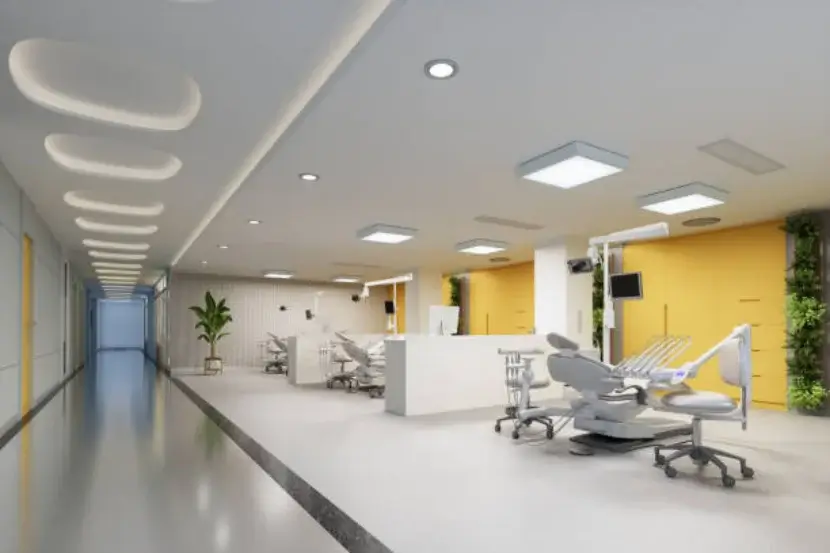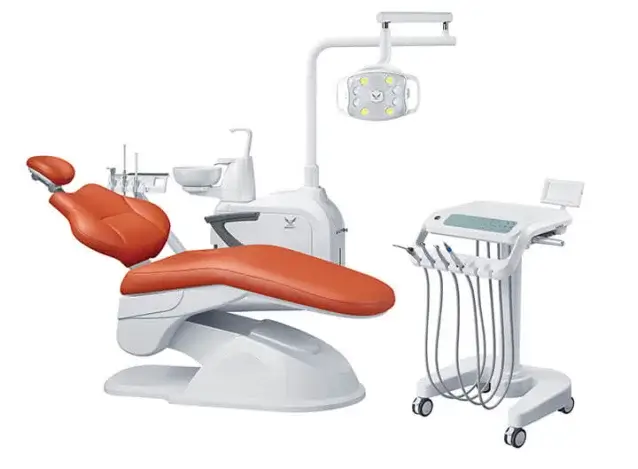
Frequent mechanical issues can disrupt the efficiency of a dental practice, causing delays and potentially leading to patient dissatisfaction. If your dental chair produces squeaking noises or exhibits jerky movements, it might indicate insufficient lubrication or worn-out components. These problems not only compromise the smooth functioning of the chair but can also create an uneasy atmosphere for patients. Regular maintenance might address these concerns temporarily, but persistent issues often signal the need for a replacement.
The physical appearance of your dental chair plays a significant role in creating a positive impression on patients. Over time, upholstery may show signs of wear such as cracks, discoloration, or peeling. Similarly, components like armrests and footrests may become loose or damaged. Patients are likely to notice these flaws, which could impact their perception of the quality of care provided.
As dental technology advances, older chairs may lack features that are now considered standard in modern practices. For example, outdated chairs might not support integrated dental instruments or advanced ergonomic adjustments. Investing in state-of-the-art equipment such as the GD-S800 Disinfection Dental Unit ensures compatibility with modern tools and enhances workflow efficiency.
Comfort is paramount in reducing patient anxiety during dental procedures. Chairs with outdated designs or inadequate cushioning can lead to discomfort, especially during lengthy treatments. Modern options like the GD-KID Children’s Dental Unit are designed with ergonomic features tailored for specific patient groups. Providing a comfortable experience not only improves patient satisfaction but also encourages repeat visits.
Older dental chairs often require frequent repairs, leading to escalating maintenance costs. These expenses can quickly add up, surpassing the cost of investing in a new chair. Additionally, sourcing replacement parts for outdated models can be challenging. A new chair offers reliability and reduces long-term operational costs.
Dental chairs endure constant use throughout the day, exposing them to stress from patient weight, movement, and repeated adjustments. This continuous strain can accelerate wear on both upholstery materials and mechanical systems. High-quality materials like those used in Foshan Gladent Medical Equipment Co., Ltd.‘s products help mitigate these effects.
In busy practices where appointments are back-to-back, dental chairs face increased usage compared to lower-volume settings. This heavy demand can lead to quicker degradation of components such as hydraulic systems and cushioning. Models like the GD-S350 Implant Type Dental Unit are specifically designed for durability under high usage conditions.
Neglecting regular maintenance accelerates wear and tear on dental chairs. Issues such as insufficient lubrication or delayed repairs can exacerbate existing problems. Proper upkeep is essential for extending the lifespan of any dental chair. However, when maintenance becomes increasingly frequent or costly, replacing the chair may be more practical.
A well-maintained dental chair ensures seamless operations and enhances patient satisfaction. Regular maintenance involves periodic checks to identify and rectify minor issues before they escalate. For optimal performance, manufacturers recommend monthly inspections of hydraulic systems, lubrication of moving parts, and thorough cleaning to prevent debris buildup. Proper upkeep is essential for extending the lifespan of any dental chair. Additionally, annual professional servicing by a certified technician can help in identifying hidden faults and ensuring compliance with safety standards.
Routine maintenance should focus on critical components such as the hydraulic system, upholstery, and electrical connections. The hydraulic pump must be checked for leaks or pressure inconsistencies, as these issues can affect the chair’s smooth movements. Upholstery should be inspected for tears or discoloration that may compromise patient comfort and hygiene. Smooth surfaces and removable parts make it easy to clean and disinfect. Electrical connections require careful examination to prevent malfunctions during operation.
Proactive repairs are cost-effective and minimize downtime in dental practices. Addressing minor issues promptly prevents them from escalating into major problems that may necessitate chair replacement. Frequent mechanical failures can disrupt the efficiency of a dental practice. Investing in proactive maintenance not only extends the life of the equipment but also ensures a consistent patient experience. In contrast, reactive replacements often involve higher costs and operational disruptions.
Portable dental chairs offer flexibility and convenience, especially for practices that require mobility or cater to remote locations. When selecting a portable dental chair, prioritize features such as lightweight construction, ergonomic design, and ease of assembly. Hydraulic systems provide smooth and precise movements. A model like the GD-S200 Plus Integral Dental Unit stands out with its durable materials and user-friendly operation, making it ideal for diverse clinical settings.

Durability is a critical factor when investing in dental chairs. High-quality materials such as aluminum alloy ensure resistance to wear and tear while maintaining structural integrity over time. Products like the GD-S600 Hydraulic Dental Unit incorporate robust hydraulic systems that enhance longevity. Additionally, certifications such as CE compliance indicate adherence to international quality standards. Imported hydraulic systems ensure smoothness and sufficient power. Evaluating these aspects ensures long-term reliability and value for money.
A: Monthly inspections combined with annual professional servicing are recommended to maintain optimal performance.
A: Look for visible tears in upholstery, unusual noises during movement, or inconsistent hydraulic adjustments.
A: While portable chairs like the GD-S200 Plus are versatile, high-volume practices may benefit from more robust models like the GD-S350 Implant Type Dental Unit.
A: Opt for models with integrated instrument support and advanced ergonomic features, such as the GD-S800 Disinfection Dental Unit.
A: Foshan Gladent Medical Equipment Co., Ltd., established in 2013 in Foshan City, Guangdong Province, offers high-quality products like the GD-S600 Hydraulic Dental Unit that meet CE certification standards across over 50 countries worldwide.
Contact Foshan Gladent Medical Equipment Co., Ltd., known for innovation in dental solutions globally!